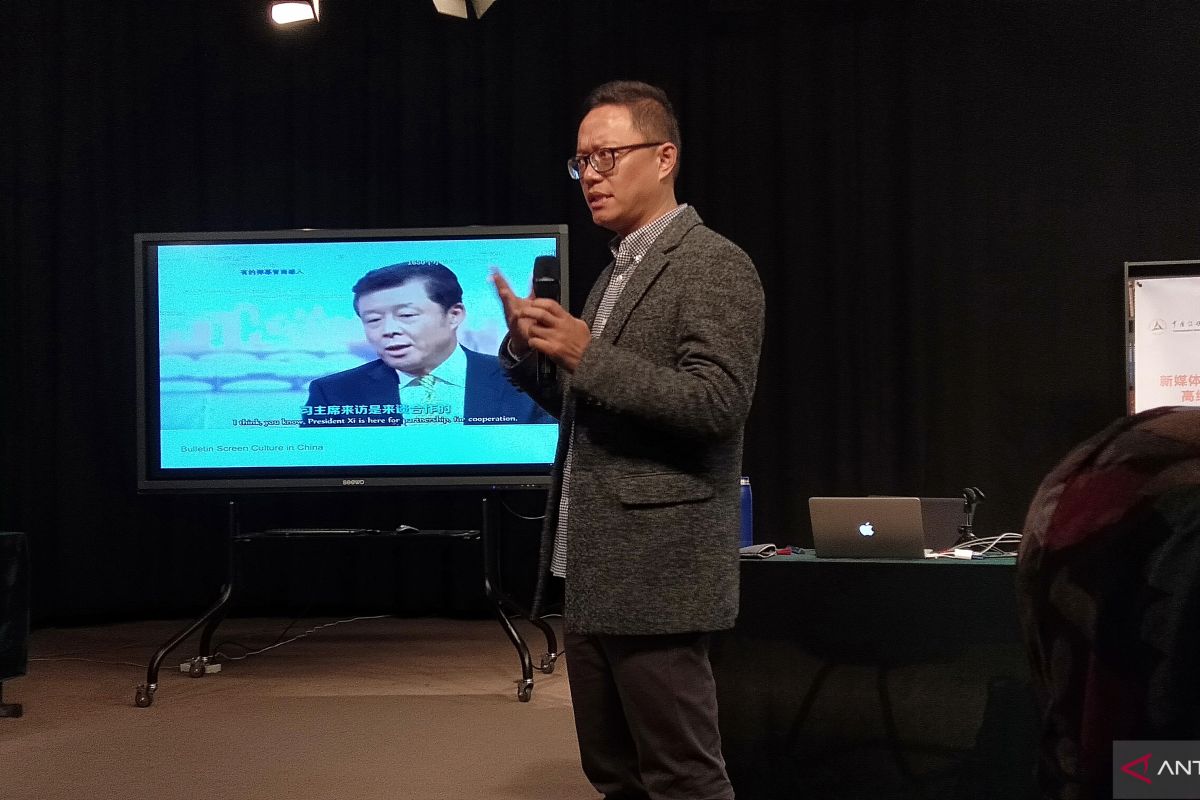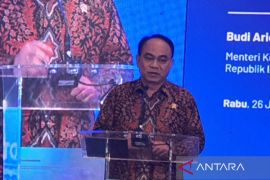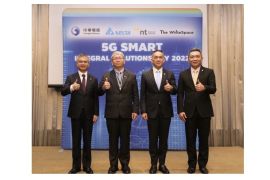Developments in wireless telecommunications technology have been taking place at a swift pace and have kept evolving within a brief span of time.
Starting from the first generation of wireless cellular technology (1G), this technology eventually developed into 2G, 3G, 4G and finally entering the 5G era.
The rising trend of the need for high-capacity and high-speed data services has fueled the emergence of the fifth generation of wireless technology (5G).
Several nations, including China, South Korea, Japan, and the United States, have entered the 5G era. In addition, 5G networks are planned for Indonesia in 2020.
The 5G cellular network offers services, such as significantly higher data upload and download speeds, coupled with a more stable connection network.
Moreover, downloading of files on 5G-enabled smartphones takes less than a second.
Professor of Electrical Engineering and Computer Science, University of California, Berkeley, Jan Rabaey reportedly stated during a conversation that 5G networks will bring in speeds of one gigabit of data per second, or also 10 gigabits per second.
This capability of sending and receiving such high volumes of data in a brief span of time opens up avenues for the application of augmented reality and virtual reality along with automation systems.
The 5G network will have a major impact in several areas, including the development of smart cities, robotics industry, drones, automatic steering control for autonomous vehicles, online videos, and other services.
Professor of Television College at the Communication University of China Weihua Wu opined that 5G technology has transformed the way people use smart devices, ranging from laptops and desktop computers to smartphones.
Wu pointed to smartphones being the most popular platform currently.
"There will be a marked migration to smartphones for the production and consumption of online videos. Within the next five-year period, smartphones will become the king," Prof. Weihua Wu stated at a New Media workshop: from Technology to Creative Work in Beijing, China.
Wu believes that 5G technology would bring about revolutionary changes in the online video game and mobile game culture.
There will be more user-generated content, such as vlog, or video blog, and live-streaming, in comparison with online application platforms, Prof. Wu stated.
He pointed to the consumption of online videos being one of the trending internet activities worldwide.
Recent data indicated that Saudi Arabia emerged as the nation with the largest online video penetration, reaching 95 percent of the online video usage in January 2018, whereas China topped in world rankings in connection with the use of online videos.
Saudi Arabia was YouTube's biggest market globally in 2018, recording the highest viewing time. Moreover, Saudi women vloggers' popularity too has soared by 75 percent.
He strongly believes that online video is probably the future, taking into account the noteworthy rise in the number of 5G users globally.
Wu pointed out that in China, 50 percent of the cellphone users had opted for 5G technology.
Prof. Wu remarked that 5G technology not only applied the latest generation of cellular technology but also revealed the future that would come for the production and consumption of online video, as well as a shift in the entire media landscape to cellular communication.
"Globally, mobile data traffic is projected to record a monthly growth of 77 exabytes by 2022, a seven-fold rise than 2017, with video traffic growing to 75 percent of the cellular data load," Wu remarked.
He estimates that in six years, 5G connections in China would reach 428 million, or 39 percent of the 5G global connection of 1.1 billion, following the United States and Europe.
China's online video market, led by Tencent Video, iQiyi, and Youku, achieved a penetration of 76 percent in June 2018, thereby indicating a five-fold rise in the number of internet users in China over the past decade.
He remarked that smartphones had turned out to be the platform of choice for watching videos, particularly for youngsters.
China's online video market continues to show a significant growth, with nearly 612 million Chinese using video-streaming services in 2018.
In the last five years, Southeast Asia had emerged as one of the hubs of the fourth industrial revolution, as it embraced the latest technologies, such as blockchain, artificial intelligence (AI), robots, cloud computing, and financial technology.
The presence of 5G technology is expected to boost the full potential of such technological innovations.
Currently, internet service providers and cellular services in this region apply 3G or 4G technology. However, 5G devices offer a larger bandwidth and dramatically lower latency and power consumption when exchanging data and costs.
In the meantime, Indonesia has planned on developing and applying 5G, with the communication and information ministry claiming that Indonesia will see commercial 5G begin to roll out by 2020.
Head of the Sub-Directorate of Arrangement of Spectrum Allocation Services at the Ministry of Communications and Informatics (Kemkominfo), Aryo Pamoragung stated at a discussion that 5G will be applied in Indonesia by 2020.
He remarked that prior to the application of the 5G network, the government will take steps to ensure readiness of the ecosystem of 5G technology.
Market circulation of smart devices equipped with fifth-generation mobile network will enable to highlight the advantages of 5G frequency.
Currently, operators -- Telkomsel, XL, Indosat, and Tri -- have conducted 5G trials.
Thus, 5G technology will enable faster loading of web pages, expedite downloading and uploading of videos, facilitate sending data to a large number of users, and allow individuals to have more connected devices.
5G technology is not only an advancement offering varied conveniences but also transforms the culture and patterns of human life.
Humans will become increasingly dependent on smart devices for carrying out activities at home, school, and office.
However, this device dependence has led to people forgetting the law of nature of functioning as social beings looking to forge friendships, communication, and interaction with others.
Editor: Rahmad Nasution
Copyright © ANTARA 2019












